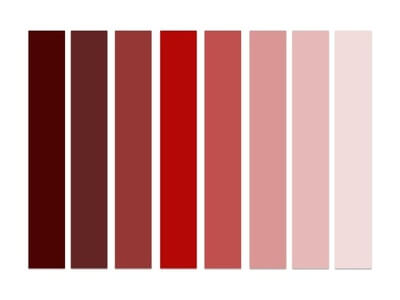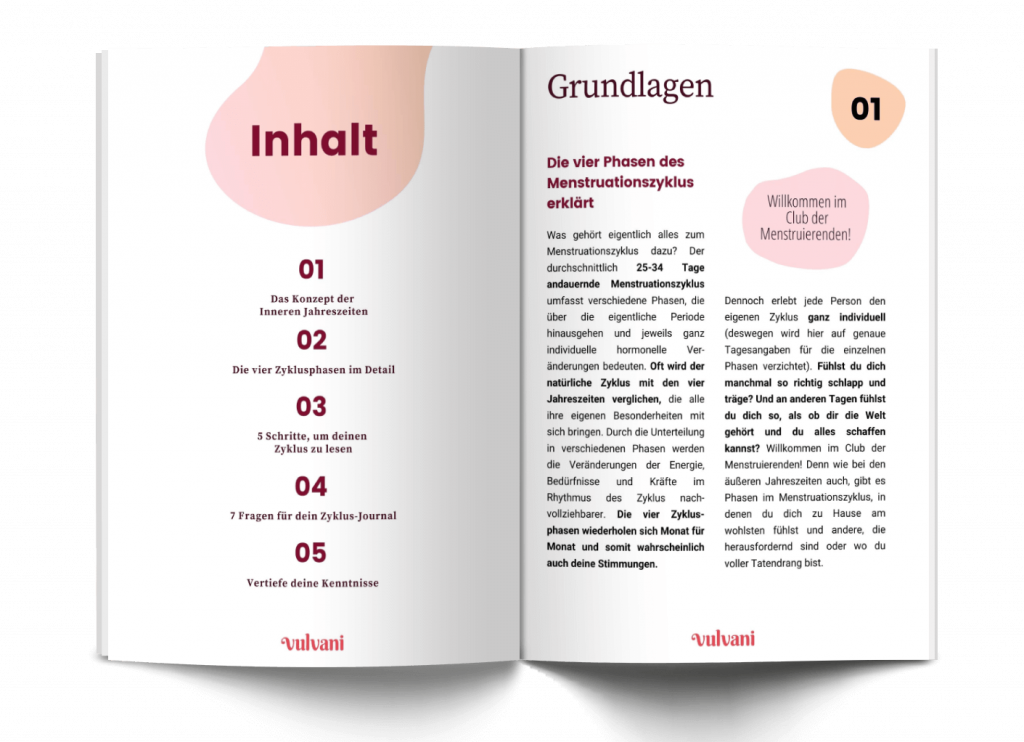
Discovering your menstruation as a spiritual practice
Yasmine understands her menstruation as a spiritual practice and shares in this interview how she is connecting more with her own body through cycle awareness.

You sometimes wonder what exactly your menstruation is? We usually don’t know precisely what is going on in our body. It’s time for a little menstrual crash course “Menstruation 101”! Because a more comprehensive understanding of our period can also improve our relationship with it. In six simple steps we will approach menstruation and give you all the important information about your monthly bleeding. A small booklet for your menstruation, a kind of Menstruation 101. Let’s go!
Menstruation is the process by which menstrual blood is discharged monthly through the vagina. This usually takes place from puberty to menopause. Did you know that the first period is also called menarche? The period is part of the natural menstrual cycle regulated by hormones. Monthly bleeding is called menstruation, period, menses and an infinite number of other synonyms or euphemisms. Which expressions do you know and use mostly for your menstruation? Feel free to write it in the comments at the bottom of the article.
The lining of the uterus changes during the menstrual cycle depending on the hormones in the body, especially estrogen. Your body is preparing for a possible pregnancy! The fertilised egg could implant itself in the thicker lining of the uterus, marking the beginning of pregnancy. However, if the implantation of the egg has not been successful, menstruation begins about 10 to 16 days after ovulation. The beginning of menstruation marks the first day of a new cycle. Menstruation is a cleansing process that is important for the body.
During menstruation, the monthly build-up of the uterine lining is reduced again. The menstrual blood and menstrual tissue flow out of the uterus through the small opening in the cervix. Menstruation is the monthly discharge of blood and mucosal tissue that has built up in the uterine lining during the menstrual cycle.
Strictly speaking, menstrual blood is not just blood, but rather a mixture of blood, discharged uterine lining and cervical mucus. Other dead cells are also found in the mix. For this reason, the menstrual blood is not completely liquid, but rather carries small bits or clumps with it as well. The better term for menstrual blood would probably be menstrual flow. You can see the different consistencies particularly well if you use a menstrual cup. With a cup, everything is first collected in a container and the menstrual fluid is not directly absorbed, as it happens with tampons.

The coloration of the menstrual blood can range from light red to bloody red. Brown to almost black are also possible colours. However, attention should be paid here. The colour of your menstrual blood can tell you a lot about your health. At the beginning of your menstruation, the blood is still fresh and usually bright red. At the end of your period, the colour of the menstrual flow turns to reddish-brown. The colour change is related to how fresh or ‘old’ the menstrual blood is and whether the blood has already reacted with oxygen. The heaviness of the menstruation also influences the colour of the menstrual fluid. For example, if the bleeding is heavier, the menstrual blood is dark red with small clumps. During a lighter period, the colour is light pink. Slight spotting immediately before menstruation, also called premenstrual bleeding, is often brownish.
On average, around 35 millilitres of blood are lost per menstruation. Such numbers are somehow always difficult to grasp. To be able to imagine it better: 35 ml correspond to about two to three tablespoons! But everything between 10 and 80 ml blood loss per menstruation is normal. So you should have at least one tablespoon of blood a month and it could be up to six tablespoons. Doesn’t sound like much, does it? If you use a menstrual cup, you can pay attention to how much blood you really lose during your next menstruation. Menstrual cups usually have a capacity of 10-25 ml. You want to see, how much that actually is? Check out our Reel on Instagram!
People who have an elevated estrogen level usually bleed more due to the unbalanced hormone levels. Gynaecological diseases, such as endometriosis, can additionally increase menstrual bleeding. People with a low oestrogen level, on the other hand, have relatively mild bleeding.
Your menstruation is your monthly and free-of-charge health check. Especially the colour and the heaviness of your period can be an indicator for health problems. It is therefore worth keeping an eye on your menstruation and taking notes of any changes. How did you like our Menstruation 101? Do you have any other questions about your menstruation? Then feel free to use the comment function or write us a private message!
Did you know that menstruation is still considered taboo in many countries? Half of the population bleeds monthly – this concerns all menstruating people! But why is it still a taboo, why are menstruators still discriminated against and why is menstruation embarrassing for many people – these are the questions we try to answer at Vulvani! If you want to know more about it, take a look at our online magazine. There you will find many exciting articles on different topics like this Menstruation 101.



Yasmine understands her menstruation as a spiritual practice and shares in this interview how she is connecting more with her own body through cycle awareness.

What options are there for male birth control? Ailsa delivers an overview of what is available now, and what may come in the future.

Sustainable underwear? The founders of TUKEA talk about fair labour conditions, body diversity and body literacy.
…and empower countless women to make empowered choices about their bodies!

